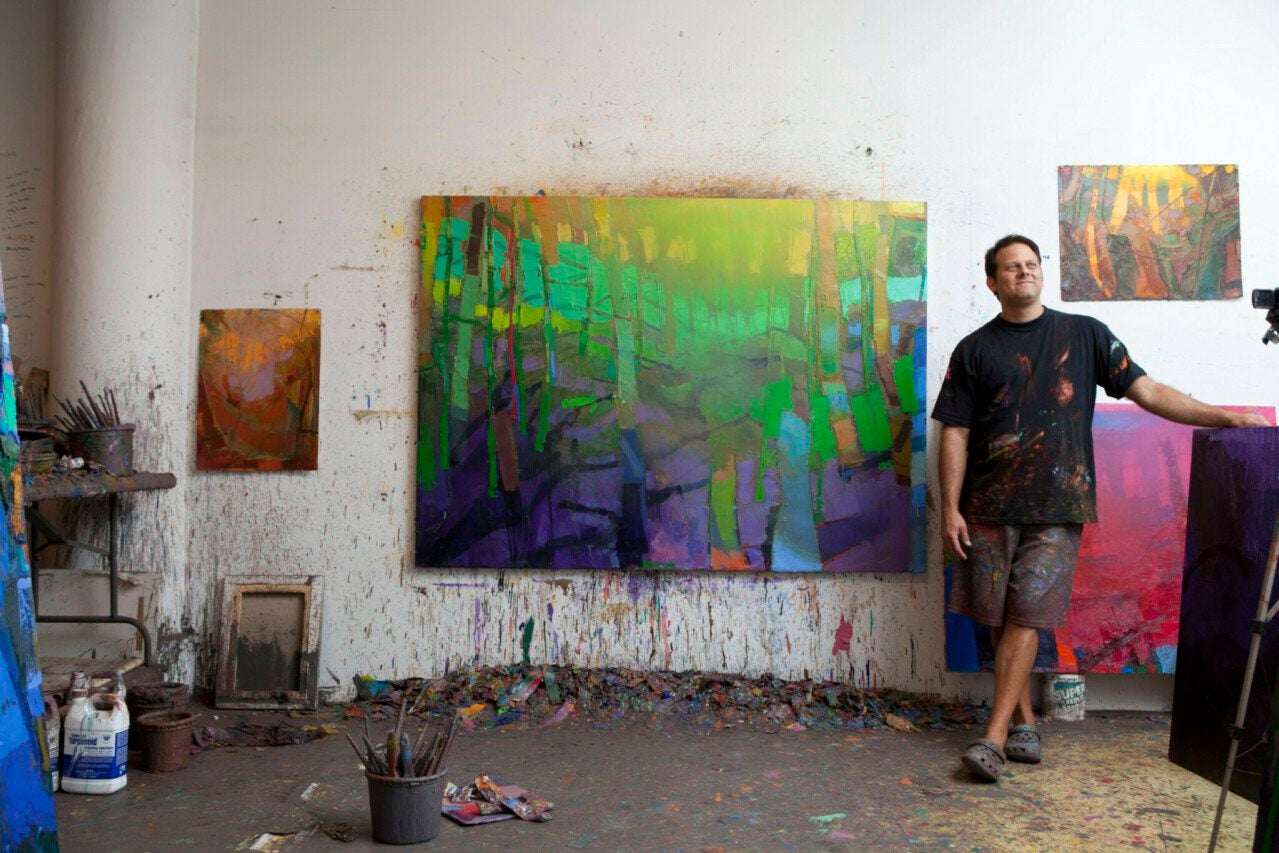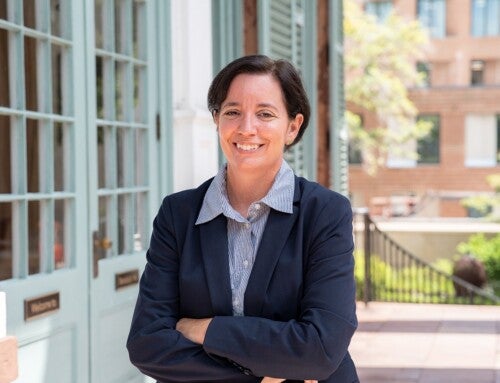In this episode of Speaking of … College of Charleston, the podcast talks to abstract artist Brian Rutenberg ’87.
A native of Myrtle Beach, South Carolina, and a current New York City resident, Rutenberg considers the College of Charleston a home away from home. One of five family members who attended the College (including his son and daughter, who are currently enrolled in the Honors College), Rutenberg has stayed actively engaged with his alma mater over the years and generously donated his painting, “Sandspur” (2017, 62 x 80 in., oil on linen), which will be hung in the recently renovated Simons Center for the Arts.
“My entire experience here at the College of Charleston can be summarized in a single word. The word is yes,” says Rutenberg. “For the entire four years I was here, 1983 to 1987, I never heard the word no, not even once. The answer to my every question was yes. And that made all the difference.”
That is why he wanted to make a difference, too. In 2017, he established the Brian and Kathryn Rutenberg Studio Art Award, with 26 students receiving the scholarship since then.
“This award has helped to jump-start the artistic careers of over 20 studio art graduates,” says Elizabeth Meyer-Bernstein, dean of the College of Charleston Honors College and interim dean of the School of the Arts, adding:” One of the initial financial hurdles facing studio art students is the purchasing materials necessary to start their careers. Given Mr. Rutenberg’s success, this award provides more than financial support, but also a vote of confidence from a well-respected alumnus and demonstrates an institutional investment in the recipients as alumni and artists.”
Rutenberg is nothing if not generous with his time and sharing lessons he’s learned with the next generation of art students.
“I feel like, if I can do anything, to be of service to younger artists or less experienced artists, then I feel like it makes me a better painter,” he says, explaining that “working as an artist can be isolating, so the reason I make the videos is to remind artists around the world that they are not alone. … By doing this, I hope to bring people into my studio and not just show them technical stuff, which can be as boring as Novocain in a dental chair; I try to show them what an artist’s life is like. I talk a little philosophy, a little personal anecdote, and then I mix some technical and art historical references in, as well.”
Resources From This Episode:
- Rutenberg says his artistic vision began as a child growing up in Myrtle Beach, South Carolina: “Myrtle Beach, as you all know, is a resort town full of spastic neon blinking lights and arcades and amusement parks, surrounded by some of the most ravishing landscapes on the East Coast. And I paid attention. So, what I saw was miraculous, I saw two landscapes, one artificial and one natural, colliding head on at 200 miles an hour right in front of my eyes, and colliding so violently that they seem to fuse into a third thing. And that elusive third thing has been the subject matter of my work for four decades. It’s a pulsating energy. It’s a visual propulsion that I couldn’t articulate, but even as a kid back then knew that I had to do something with it, so that’s what sort of set the tone for me to become a visual artist.”
- Rutenberg’s first painting class at the College was with studio art professor William Halsey – it was Halsey’s last class before retirement. Rutenberg credits Halsey as one of his major influences: https://vimeo.com/280620313.
- Another influence, and a father figure, was the late professor and artist, Michael Tyzack.
- Learn more about Rutenberg’s time at the College and his artistic process in this 2016 story: https://today.cofc.edu/2016/01/20/southern-landscape-painter-rutenberg/.
- Rutenberg received his master of fine arts at the School of Visual Arts.
- A few of Rutenberg’s favorite quotes:
“If you can’t explain it simply, you don’t understand it well enough.” – Albert Einstein
“Don’t think. Thinking is the enemy of creativity. It’s self-conscious, and anything self-conscious is lousy. You can’t try to do things. You simply must do things.”— Ray Bradbury
“The essence of all beautiful art, all great art, is gratitude. ”― Friedrich Nietzsche




